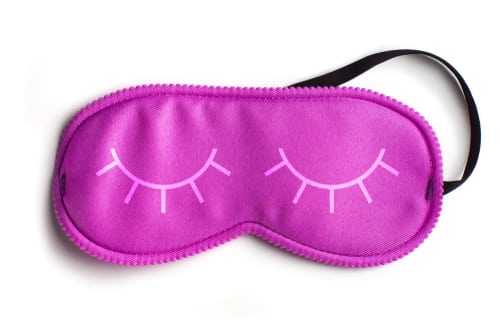When you look at your work-life balance, it’s easy to overlook a major component of the “life” part: sleep. Not getting enough sleep can adversely affect your productivity in your work life. Sleep deprivation is a leading cause of workplace accidents. Even if the physical risks in your work are relatively low, the reduced function of a sleepy brain can lead to lower efficiency and potentially costly mistakes. After the 17-hour mark of being awake, your performance is roughly the same as if you were drunk.
Most of the expert advice on building and maintaining good sleep habits is fairly standard. You should maintain a routine, and 7 to 8 hours is optimal, in a dark and cool environment. Here, we will explore some ways to make the standard advice work better for your needs.
The Routine
As much as we may enjoy a lie-in on the weekend, our bodies respond better to predictable patterns. Ideally, you go to sleep at the same time and wake up at the same time every day—even when the next day isn’t a workday. This type of routine is more challenging to get into and maintain for some of us, but you have tools that can help. You’re probably accustomed to waking up to an alarm, but have you considered using an alarm to tell you when it’s bedtime? The principle is basically the same, and many phones and other devices have apps that can do this for you.
The Preparation
If you have trouble winding down for sleep at the end of the day, creating a relaxing ritual for yourself is the way to go. The ritual doesn’t have to be anything special. A warm bath, soft music, a book, or television does the trick for most people. There’s some evidence reading is preferable for relaxation, not only because it reduces the chance of falling into a Netflix binge. Whatever you choose, make sure it’s not so exciting as to interfere with sleep.
Some people engage in meditation or prayer before sleeping. These activities calm the mind and allow us to put our worries away. Specific visualizations or a muscle relaxation sequence may work better than mind-clearing meditation, depending on your preference. If mindfulness isn’t sufficient to clear away the day’s anxieties, journaling is another way to clear your mind and relax by putting your worries away for the night.
It may go without saying that you should try to avoid caffeine and other stimulating chemicals in the hours before sleep, but what you eat is also important preparation. You shouldn’t be hungry or too full, and carbohydrates promote sleep more easily than proteins.
The Environment
Your sleeping space should be reserved for sleep. Whatever ritual you decide to make part of your sleep preparation, do it somewhere else. Read in a comfortable chair, then go to bed. Power down devices, so their light doesn’t disturb you. If you use a sleep meditation app, either make it dark or use it in a different room. If you have trouble getting comfortable, look into the quality of your mattress, pillows, and linens—these are sound investments in the long term. Keep the lighting low and the temperature between 60 and 70 degrees. While a quiet room is best, you may find white noise a soothing choice, especially if you live in a naturally noisy area.
If All Else Fails…
Sometimes we go through our routines, lie down at the designated time, and sleep just won’t happen. At that point, it’s easy to fall into a cycle of stressing about not falling asleep, which just makes it that much harder to fall asleep. Watching the clock has never been helpful to anyone. Instead of lying there, give yourself 15 to 20 minutes, then get up and try another means of relaxation or a boring, repetitive activity. It’s better to get up and try again than to associate your bed or sleeping space with the frustration of insomnia. Trust that you’ll get tired eventually.
If you still have trouble falling asleep or staying asleep on a regular basis, consult a doctor about possible sleep apnea or other medical issues that may interfere with good sleep. You deserve to relax at the end of a long day.
The Records Company can’t solve all your sleep challenges, but we can help reduce your stress at the end of the day and give you more hours for relaxation. We never sleep when we’re working for you. Contact us today and rest a little easier.
